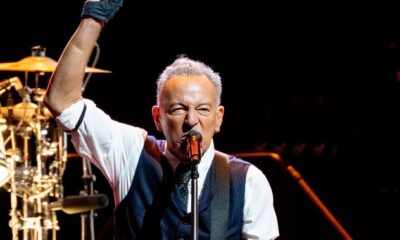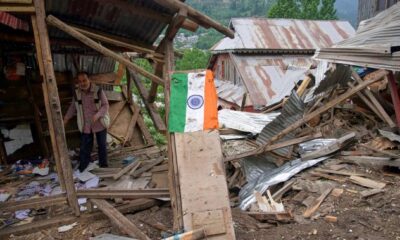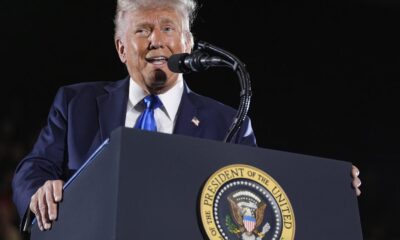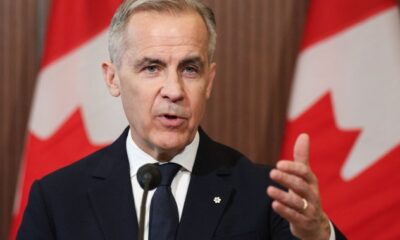Breaking News
South Korea’s acting president has been impeached. What to know – National
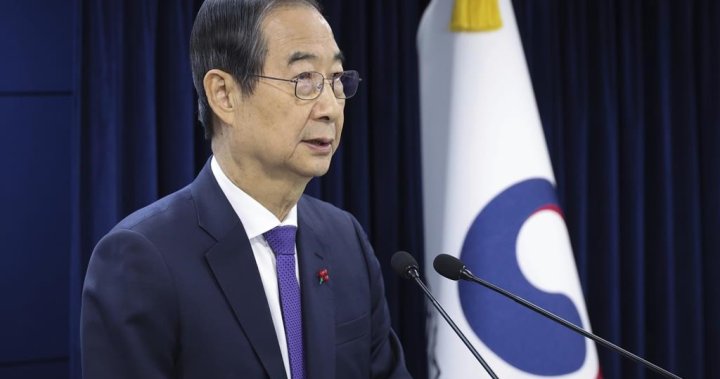
The impeachment of South Korea’s acting President Han Duck-soo Friday has thrown the country into further political turmoil, following the recent impeachment of President Yoon Suk Yeol by lawmakers less than two weeks ago.
The back-to-back impeachments that removed the country’s top two officials are unprecedented. The deputy prime minister and finance minister, Choi Sang-mok, has been appointed as South Korea’s new interim leader. Upon assuming power, Choi immediately ordered the military to enhance readiness to deter potential North Korean aggressions and instructed diplomats to reassure key partners such as the U.S. and Japan.
“(Han’s) impeachment now creates an opportunity for external threats while causing Korea’s foreign partners to alienate it from the global community,” said Duyeon Kim, a senior analyst at the Center for a New American Security in Washington.
Here are the latest developments on the political turmoil in South Korea, which began with Yoon’s brief imposition of martial law on Dec. 3.
Why was the acting leader impeached?
Prime Minister Han Duck-soo, the No. 2 official in South Korea, assumed the role of acting leader after Yoon was impeached on Dec. 14 for his declaration of martial law, which involved deploying hundreds of troops in Seoul and evoked memories of past military rule in the 1960s and 70s.
Han, a seasoned bureaucrat, attempted to reassure major diplomatic partners and stabilize markets. However, he became entangled in political conflicts with the main liberal opposition Democratic Party, which holds a majority in the assembly. One of the main reasons for Han’s impeachment was his refusal to promptly appoint three vacant justices’ seats at the Constitutional Court as demanded by the DP to enhance fairness and public trust in the court’s ruling on Yoon’s impeachment.

It is essential to restore the court’s full nine-member panel as a ruling to remove Yoon from office requires support from at least six justices. A complete bench is likely to increase the chances of Yoon’s removal. Han stated that he would not appoint the justices without bipartisan agreement, but critics suspect that he was aligning with Yoon’s supporters in the ruling People Power Party (PPP) who aim to see Yoon reinstated.
Choi Jin, director of the Seoul-based Institute of Presidential Leadership, pointed out that Han lacked valid reasons to oppose the appointment of the court justices. However, he also noted that the DP should not have rushed into Han’s impeachment.
What diplomatic fallouts are expected?
Han’s impeachment occurred at a time when South Korea was trying to convey a sense of normalcy following the martial law incident, which raised concerns among neighboring countries, disrupted high-level diplomacy, and impacted financial markets.

Get breaking National news
For news impacting Canada and around the world, sign up for breaking news alerts delivered directly to you when they happen.
Yoon’s imposition of martial law puzzled policymakers in the U.S, Japan, and Europe, as he has been a key diplomatic ally in addressing common challenges such as China’s assertiveness, North Korean nuclear threats, and vulnerabilities in global supply chains.
“South Korea is now facing a severe crisis of leadership and governance. The DP’s political maneuver is jeopardizing the country’s economy and national security,” stated Duyeon Kim. “Han had the expertise and qualifications to tackle security and financial crises in the midst of South Korea’s political instability.”
Choi Jin expressed doubts about acting leader Choi’s ability to effectively engage in diplomacy with world leaders. “We will face international disgrace, and our global credibility will plummet,” he remarked. “Negative impacts on the economy, culture, and other sectors are likely to occur silently and extensively.”
The ruling party argued that Han’s impeachment was “invalid” as it was passed with a simple majority in the 300-member assembly, not the two-thirds majority claimed by the PPP.
There are no specific laws regarding the impeachment of an acting president, and the PPP has petitioned the Constitutional Court to review the impeachment vote.
It remains uncertain when the court will make a decision on this matter. While the Constitutional Court has 180 days to determine the validity of both Yoon and Han’s impeachment, it is expected that a decision will be reached sooner.

Han described his impeachment as “regrettable” but stated that he respects the assembly’s decision.
The court held its initial pretrial on Yoon’s case on Friday. If Yoon is removed from office, a national election must be held within 60 days to choose his successor. Yoon and others are also under investigation by law enforcement agencies for allegations of rebellion, abuse of power, and other offenses related to the martial law decree.
According to polls, Democratic Party leader Lee Jae-myung is the frontrunner to win a potential presidential by-election if Yoon is ousted. However, Lee is facing his own legal issues and may be disqualified from running for president if his previous conviction for violating election laws in November is upheld by the appellate and Supreme courts.
If Lee becomes president, his trials would be halted as South Korean law grants sitting presidents immunity from most criminal prosecution.
© 2024 The Canadian Press
-

 Destination8 months ago
Destination8 months agoSingapore Airlines CEO set to join board of Air India, BA News, BA
-

 Breaking News10 months ago
Breaking News10 months agoCroatia to reintroduce compulsory military draft as regional tensions soar
-

 Tech News12 months ago
Tech News12 months agoBangladeshi police agents accused of selling citizens’ personal information on Telegram
-

 Gadgets3 months ago
Gadgets3 months agoSupernatural Season 16 Revival News, Cast, Plot and Release Date
-

 Productivity11 months ago
Productivity11 months agoHow Your Contact Center Can Become A Customer Engagement Center
-

 Gadgets3 weeks ago
Gadgets3 weeks agoFallout Season 2 Potential Release Date, Cast, Plot and News
-

 Breaking News10 months ago
Breaking News10 months agoBangladesh crisis: Refaat Ahmed sworn in as Bangladesh’s new chief justice
-

 Toys12 months ago
Toys12 months ago15 of the Best Trike & Tricycles Mums Recommend



